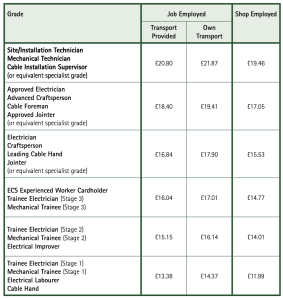CITB to cut jobs by 30% to become more efficient
This post has already been read 3462 times!
The CITB has confirmed today that it will be streamline its services with a cut in jobs of 30% with staff numbers to drop from the current 1400 to 950 by 2018 this is being done in conjunction with CITB’s new initiative “Changing the way we work to become more valuable to the industry”.
CITB’s Board has approved the organisation’s priorities for the coming three years, which will be published later this month.
The plan is designed to make CITB more responsive to industry needs, return maximum Levy value to construction employers, and make the organisation more modern, cost-efficient and able to help thousands more firms invest in training each year.
Responding to what employers have told it, CITB’s priorities will be:
• Developing a comprehensive evidence base on current and future skill needs and supply
• Using this evidence to target training provision to meet these needs
• Reforming its grants scheme to deliver simpler, more targeted funding support
• Developing qualifications and supporting the development of new apprenticeship trailblazer standards
• Making the government’s reform of FE and apprenticeships deliver for construction and boost apprenticeship numbers
• Supporting employers to attract and retain people by setting out opportunities, entry routes and progression routes within the industry
• Back office or support functions will be reviewed for efficiency and effectiveness with a view to modernising or outsourcing.
Stephen Radley, Director of Policy at CITB, said: “In delivering this plan, we will review all current CITB activity to make sure Levy money is being used to best effect for construction employers. We will invest in the most-needed training, and work through partnerships and commissioning wherever possible to make sure it is available in the right places.”
The organisation itself will continue a major restructure and has committed to significant cost savings and an overall reduction of 30% in headcount by the end of 2018, including steps it has already taken such as the reshaping of business information and advice.
CITB will achieve this by investing to modernise its currently outdated systems and processes; by consolidating roles to reduce duplication; and by seeking to work through partnerships and commissioning, rather than always delivering training directly.























Pingback: CITB "Changing the way we work" to improve levy distribution